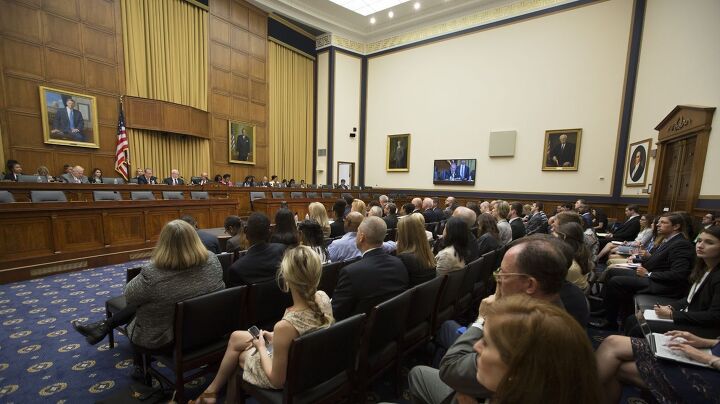House Judiciary Committee Votes In Favor of CCW Reciprocity Act

Even though we enjoy probably the best firearms laws on the planet in the United States, for anyone who lives in an area where crossing state lines is a daily occurrence, you might often run into a situation where your permit isn’t recognized simply by you going to work for the day. Frustrating, right? While a national CCW reciprocity law has been a constant topic of discussion for as long as I can remember, on Tuesday, the likelihood of that becoming a reality just increased, at least a little bit. On March 25, 2025, the House Judiciary Committee voted 18-9 to advance the Constitutional Concealed Carry Reciprocity Act, as the National Rifle Association (NRA) shared on X. Now, it’s headed to the full House for a vote.
More Concealed Carry News @ TFB:

House Judiciary Committee Votes In Favor of CCW Reciprocity Act
This bill, introduced by Representative Richard Hudson, would let your concealed carry permit work in any state that allows concealed carry, kind of like how your driver’s license works nationwide. With 22 million permit holders and 29 states already on the Constitutional Carry bandwagon, this change feels long overdue for a lot of people who have had the liberty that a constitutional carry state gives them. H.R. 38 has 177 cosponsors in the House, showing that a lot of leaders agree it’s time for a fair, consistent standard that applies to all states.

If it passed and went into effect, that would be the end of it, but this small vote in favor doesn’t mean that this ongoing CCW saga is over – in fact, it might not even be the big win that a lot of people claim it is. The bill needs to pass the House, where it just needs a majority to move forward. Then comes the Senate, which might be trickier. If it clears both chambers, it’ll land on the President’s desk to become law.

If the Constitutional Concealed Carry Reciprocity Act (H.R. 38) becomes law, states would still have some control over concealed carry within their borders, but with limits. The bill means states must recognize out-of-state concealed carry permits if they already allow concealed carry for their own residents. However, states can still set their own rules, like banning guns in places like schools, parks, or bars, or restricting certain firearm types. So, while a Texas permit holder could carry in New York, they’d have to follow New York’s local laws about where and how to carry, which might even include firearm and ammunition restrictions. States can’t completely ignore out-of-state permits, but they can make it tricky with their own restrictions.
For those of us who like to travel around the breadth of our great country often, this law would mean quite a lot. Knowing that your right to self-defense travels with you, whether you’re visiting family or just on vacation, would be great for the citizen, and hopefully alleviate the strain on local law enforcement. What would this mean for you? Have you ever faced a situation where your permit didn’t cross state lines? Let us know how H.R. 38’s passing into law would affect you.



